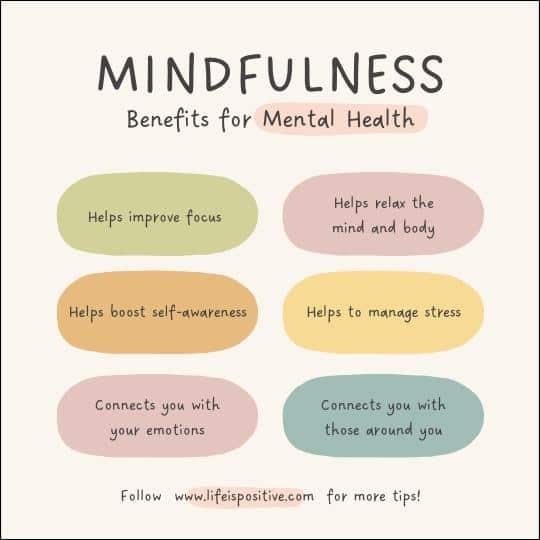|
Getting your Trinity Audio player ready...
|
Ever wonder what actually happens in your brain when you meditate? The answer is both fascinating and transformative. Meditation and the brain are deeply connected—this simple practice has the power to rewire thought patterns, calm emotional storms, and increase clarity.
It’s more than just sitting in silence; it’s a spiritual reset and a scientific marvel. Studies show that meditation and the brain go hand in hand to reduce stress, enhance focus, and even boost compassion.
What Does Meditation Mean?
Meditation is a simple yet powerful practice where you focus your mind to achieve a calm, clear state of awareness.
It’s like giving your brain a much-needed break from the hustle and bustle of daily life.
By sitting quietly and paying attention to your breath, thoughts, or a specific object, you can reduce stress, improve concentration, and boost your overall well-being.
Meditation has been practiced for centuries across various cultures and continues to be a popular way to find peace and clarity in our busy modern world. It’s a little time-out for your mind that offers big benefits.
The Brain on Meditation
These key elements are super important for how your brain works and grows over time.
1. Boosting Gray Matter
One of the most meaningful effects of meditation on the brain is its ability to increase gray matter. Gray matter plays an essential role in how we process information, move our bodies, perceive the world, remember things, and make decisions.
Through consistent meditation, studies have shown that the cerebral cortex can become thicker, especially in areas related to attention and sensory awareness.
This isn’t just a physical shift; it reflects a deeper alignment between the mind and spirit. By taking time each day to sit in stillness, you’re gently supporting your brain’s growth and strengthening your ability to be present, aware, and connected.
Read: Exercises For Your Brain
2. Enhancing Connectivity
Meditation gently nurtures deeper connection within the brain, allowing different regions to communicate with more harmony and ease. This inner alignment supports clearer thinking, stronger awareness, and a more grounded sense of presence.
One area affected is the default mode network (DMN), which becomes quieter during meditation. The DMN is often active when the mind is wandering or caught in self-focused thoughts. As it softens, we experience less mental chatter and greater clarity.
With regular practice, meditation invites the mind to settle, helping the brain function more smoothly. It becomes easier to remain present, centered, and in tune with the moment.
Emotional Regulation and Resilience
Another great benefit of meditation is how it helps with emotional regulation and resilience. When we meditate, we teach our brains to handle stress and negative emotions better.
1. Amygdala Shrinkage
The amygdala, which handles fear and emotional responses, tends to shrink with regular meditation. This shrinkage is linked to lower stress and anxiety levels.
By calming this part of the brain, meditation helps us achieve a more balanced and less reactive emotional state. So, consistent meditation can make you feel more at ease and better equipped to handle life’s ups and downs.
2. Strengthening the Prefrontal Cortex
The prefrontal cortex, the brain’s decision-making center responsible for attention and self-control, gets stronger with meditation.
This boost helps you regulate your emotions and control your impulses better. In simple terms, meditation creates a buffer between your emotions and reactions so you can respond thoughtfully instead of reacting impulsively.
It’s like giving your brain a little extra strength to handle whatever comes your way.
Cognitive Benefits
Meditation isn’t just great for your emotional health; it also does wonders for your brain’s cognitive functions.
1. Improved Memory and Learning
Regular meditation has been linked to better memory and learning abilities. In people who meditate, the hippocampus, a part of the brain crucial for memory, shows increased gray matter density.
This means meditators have better recall and can learn new things more easily. So, if you want a sharper memory and quicker learning skills, meditation might be the key!
Read: Science Behind the Brain’s Creative Thinking
2. Enhanced Attention and Focus
What does meditation do to the brain in terms of attention and focus? It significantly sharpens these abilities. By training your mind to stay present, meditation improves sustained attention and reduces distractions.
This boost is especially helpful in our fast-paced world, where multitasking and constant stimuli are the norms. So, if you want to be more focused and less easily distracted, meditation is a great practice to adopt!
Meditation and Neuroplasticity
Neuroplasticity, the brain’s amazing ability to reorganize itself by forming new neural connections, is one area where meditation has a big impact.
This ability helps the brain adapt to new experiences, learn new information, and even recover from injuries.
Meditation enhances neuroplasticity, making your brain more flexible and resilient.
So, meditating can help keep your brain in top shape, ready to take on new challenges and bounce back from setbacks.
1. Creating New Neural Pathways
Through meditation, we encourage the creation of new neural pathways. This process boosts learning and memory while helping to overcome harmful habits and behaviors.
In essence, meditation rewires the brain for better mental health and improved cognitive functioning. So, by meditating, you’re giving your brain a chance to grow and adapt in positive ways.
2. Long-Term Brain Changes
The effects of meditation aren’t just short-lived.
Long-term meditation practice leads to lasting changes in the brain’s structure and function. These changes support ongoing mental clarity, emotional stability, and overall well-being.
For those who stick with regular meditation, the benefits add up, providing a solid foundation for a healthier, more resilient mind. So, if you commit to meditating regularly, you’ll enjoy long-lasting improvements in your mental health and overall quality of life.
Meditation and Mental Health
Meditation has long been known for its mental health benefits. Beyond just reducing stress, it significantly helps with conditions like depression and anxiety.
Understanding what meditation does to the brain can show us why it’s such a powerful tool for mental health. By meditating regularly, you can find support and relief from these challenges, making it a valuable practice for overall well-being.
1. Reducing Symptoms of Depression
Meditation helps you reduce the symptoms of depression by promoting positive thinking and emotional balance.
It changes your brain’s patterns, encouraging a more positive outlook and lessening the impact of negative thought cycles.
For many people, meditation is a natural and effective complement to traditional treatments for depression, making it a valuable tool for improving your mental health.
2. Alleviating Anxiety
Anxiety is another area where meditation shows big benefits. By calming your mind and reducing activity in the brain areas linked to stress and fear, meditation helps alleviate anxiety.
This reduction in anxiety not only boosts your mental health but also improves your overall quality of life.
So, if you’re looking for a way to feel more relaxed and at ease, meditation might be just what you need!
Read: 11 Ways to Cope with High-Functioning Anxiety

Practical Tips for Starting Meditation
Here are some practical tips to help you begin your meditation journey.
1. Find a Quiet Space
Choose a quiet and comfortable place where you can sit undisturbed for a few minutes. This space doesn’t need to be elaborate; it just needs to be a place where you feel relaxed.
2. Start Small
Begin with just a few minutes of meditation each day. As you become more comfortable with the practice, you can gradually increase the duration. Starting small helps in building a sustainable habit without feeling overwhelmed.
3. Focus on Your Breath
A simple way to meditate is to focus on your breath. Pay attention to the sensation of your breath entering and leaving your nostrils. When your mind wanders, gently bring your focus back to your breath. This practice helps in cultivating mindfulness and present-moment awareness.
Read: Purpose of Buddhist Meditation
4. Use Guided Meditations
If you’re new to meditation, guided meditation can be very helpful. There are many apps and online resources that offer guided sessions, making it easier to stay focused and committed.
Final Thoughts: What Does Meditation Do To The Brain
Meditation offers a quiet, yet powerful transformation for the mind and spirit. When we ask, what does meditation do to the brain, the answer reflects both science and inner wisdom. It increases gray matter, strengthens the brain’s connections, and helps quiet the parts of the mind that lead to distraction and restlessness.
This inner stillness allows us to become more present, more aware, and more attuned to the moment. Over time, meditation reshapes how we think, feel, and respond to life. It supports clarity, emotional balance, and a deeper connection to our true selves.
Meditation is more than a practice—it is a return to stillness, a sacred space where healing and insight arise. With each breath, the mind settles, and the heart opens. The path may be quiet, but the impact is profound. Let your practice guide you inward, where peace has always been.
For more empowering content, connect with our vibrant community here ➡️ Social Media.


